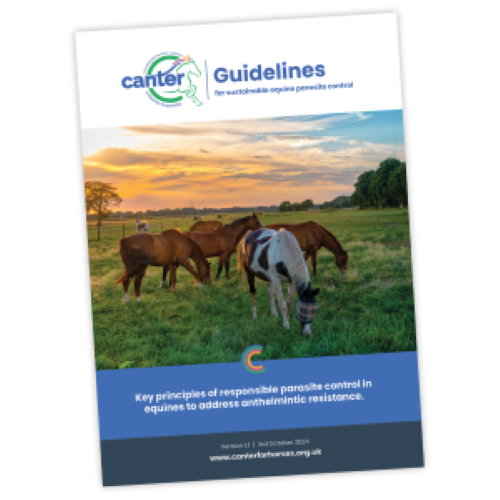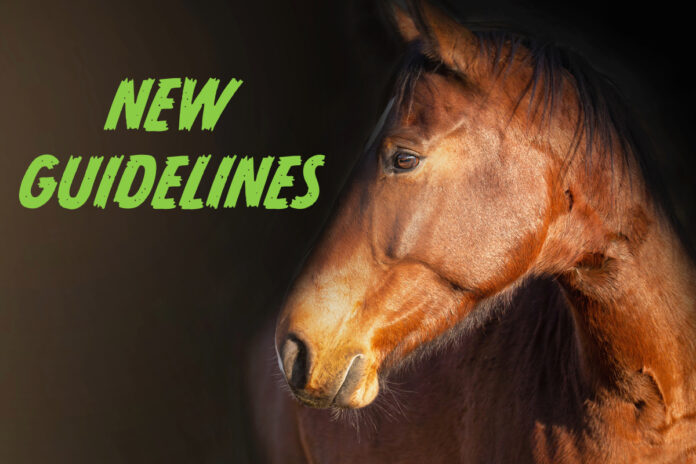Management key to addressing “critical threat,” say experts.
New guidelines have been issued to support SQPs, vets and pharmacists in the way they prescribe and supply horse wormers.
An advisory document, issued by the pan-industry group CANTER (Controlling ANTiparasitic resistance in Equines Responsibly) last week, covers worm control in UK horses.
It urges SQPs and vets to recommend sustainable strategies for parasite control rather than repeated blanket use of drugs.
“Publishing the first edition of these industry-agreed guidelines is a seminal moment in the life of CANTER and our work to address the very real threat posed by anthelmintic resistance,” said CANTER chair Alison Pyatt.
“Our intention is for [the guidelines] to be a free, easily accessible, live resource that underpins our first aim, to support prescribers with practical, evidence-based principles to slow wormer resistance.

to recommend sustainable strategies for
parasite control to their horse-owning clients.
“Moving to non-chemical management strategies and utilising monitoring tools to inform the need to treat is the only way we will maintain the efficacy of our limited treatments and safeguard horse health into the future.
“The CANTER Guidelines offer a comprehensive resource to inform the decision-making process and underpin the advice given at the point of prescribing to promote this behaviour change. We encourage prescribers to read them, refer to them and reference them in their practice.”
Need for change
World Horse Welfare’s chief executive Roly Owers, who is also a vet, underlined the need for change.
“Antiparasitic resistance is a critical and growing threat to equine health and welfare so the publication of the CANTER Guidelines as key principles for equine parasite control is a huge step forward in tackling this crisis,” he said.
“The guidelines will be essential in promoting clarity and consistency in the approach to sustainable equine parasite control.”
Practical advice
The message is clear, says CANTER, repeated blanket treatments for drug resistant worms are no longer recommended. Instead, prescribers are encouraged to:
- Apply pasture and horse management strategies to reduce parasite infection in the environment and break worm transmission cycles.
- Use monitoring tools such as worm egg counts to inform the need to treat individuals shedding higher levels of eggs and monitor for resistance
- Apply a risk-based approach to estimate parasite transmission potential in individual horses.
CANTER says its next priority is to develop a range of resources for the horse owner.
The CANTER guidelines are available on the CANTER website at www.canterforhorses.org.uk
- ETN publishes regular CPD features to help SQPs, also known as RAMAs (registered animal medicine advisors), to maintain their professional qualification to prescribe wormers. Find out more at www.equestriantradenews.com

















